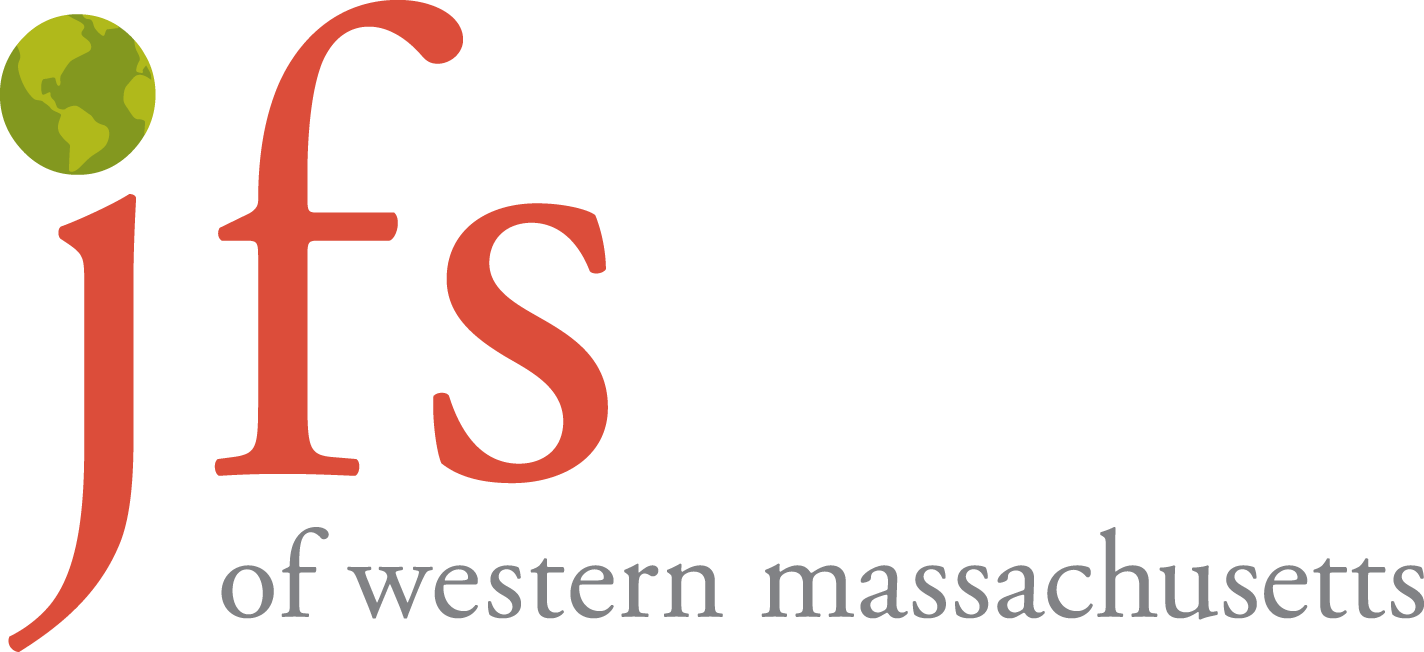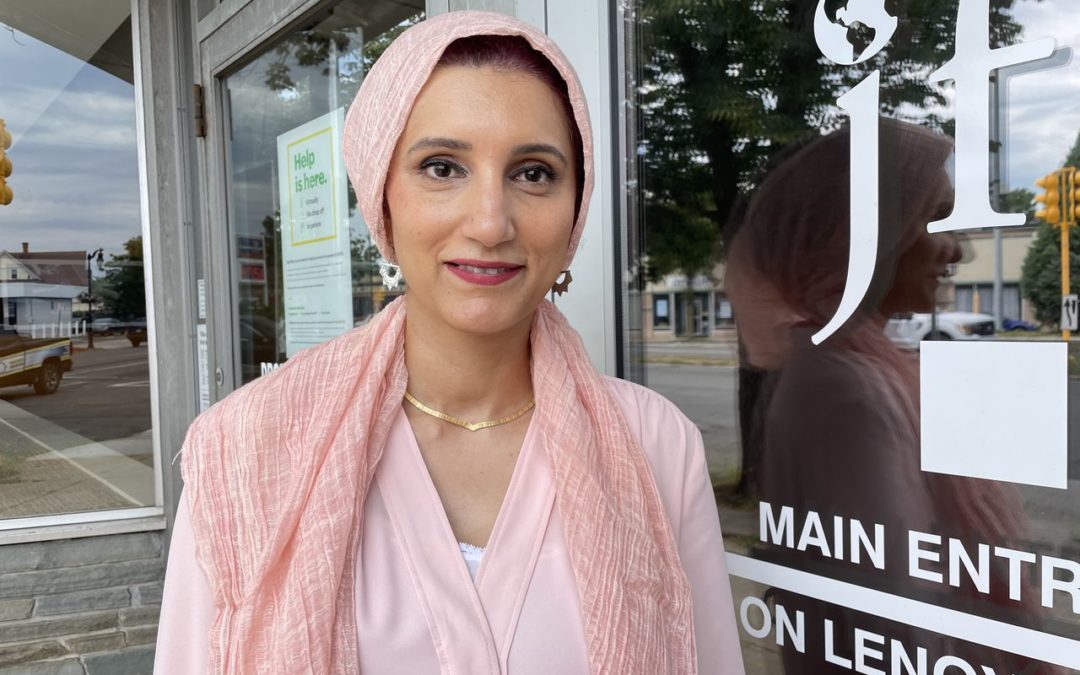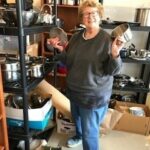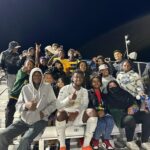Syonara Tomoum, an Egyptian-born scholar and UMass doctoral student who has taught Arabic in the Five Colleges system, is an adult and youth education coordinator at Jewish Family Service of Western Massachusetts. (Anne-Gerard Flynn photo)
Resettled Afghan mothers, some in classroom for 1st time, revel in literacy class
MassLive
By Anne-Gerard Flynn | Special to The Republican
SPRINGFIELD —On a recent weekday at Jewish Family Service of Western Massachusetts, several rooms off the main hallway of the Welcome Center were in use for a rather ordinary, but yet quietly extraordinary purpose — the education of Afghan mothers.
Some of these women have never before been allowed in a classroom, and all resettled with their families in the past year after the U.S. military withdrawal from Afghanistan. Images of that chaotic exit fade while watching the women in deep concentration learn English, the basics of American society and digital technology in a program their early input helped fashion.
JFS accommodated their request to be in a female-only environment, as many earlier this year were breastfeeding infants who were sleeping much of the day.
All are wearing the modest head coverings and black garments associated with their Muslim faith, as well as the facial masks of the pandemic. What really defines their unity, however, is the fact that they are all women and their intensity of focus. Some peer without distraction into Chromebooks with their English-as-a-second language teacher, while other students, who include at least one older woman, learn how to sign onto them in another room.
Some of their children play quietly, but equally attentively, on the floor, and at a table one-on-one with a volunteer child minder in a section of a nearby third room, though some prefer to be in classrooms with their moms. None are crying and the only sounds are among students learning from their teachers and JFS support staff.
“Everyone loves the class and everyone is learning,” said Mastora, 22, whose 2-year-old daughter was born in Afghanistan, while her 8-month-old son was born here. “Ten women come to class and everyone has two or three children.”
Education for females in Afghanistan became increasingly less available after the 1979 Soviet invasion and the country’s disintegration into many years of war, followed by the strict fundamentalist rule from 1996 to 2001 of the Taliban, which limited education to males.
A rebuilding of the educational system under the U.S. occupation reopened schools to girls and boosted the female literacy rate from 17% to 30% over seven years. But the Taliban’s return to power last year closed schools at the secondary education level to girls.
The United States ended its longest war when it airlifted the last of its military from Afghanistan last August. The evacuation after two decades of occupation included Afghans who were eligible for U.S. admission, along with family members, as a result of work for the U.S. government or nongovernmental organizations that could make them targets for retribution from Taliban forces.
The massive airlift that also included American citizens and nationals from other countries was a desperate one in the end, involving the evacuation of some 120,000 people in 17 days, as the country’s government fell to the Taliban and left behind many eligible Afghans. It highlighted what war brings — trauma, separation and many unknowns for the future.
Fast forward 11 months to the thrice-weekly literacy class for Afghan moms and babies, who were part of that airlift with their families, that is creating hope for a more secure future.
The class is part of the New Americans program of Jewish Family Service that has done refugee resettlement work in Western Massachusetts for decades.
Mastora, who gave only her first name for privacy and security reasons, has emerged as the peer translator for the class. She was educated to the elementary school level in Afghanistan, and the JFS program has been her opportunity to return to school after six years.
Her face clouds with sorrow when asked about leaving her country, something she calls “very hard,” but admits she “loves learning and everything about the class.”
She clearly understands its transformational aspect and adds Afghan women resettled elsewhere are envious of the possibilities attendance offers.
“We have good moments in the class,” said Mastora, whose first language is Dari, one of two official languages of Afghanistan. “Because we are at home with the kids, we get tired with kids and kids get tired at home. We go to class and they are with other babies and they play together and share. We have friends at class. Everything is very, very good.”
Mastora’s understanding of English — she has a volunteer tutor who comes to her home as well — has enabled her to do several Google slide presentations at JFS about her country.
Her at-home tutor, author and English professor Lucy Ferriss, said these presentations require Mastora to do “more than finding an English description online and pasting it in.”
“She had to cobble together the words she needed to express her point, and then we worked to find simpler, more efficient sentences from which she learned more about syntax and vocab,” Ferriss said. “As an example, saying that Afghanistan is ‘in the heart of Asia’ meant learning something about metaphor. And learning that people in Panjshir ‘value’ independence meant learning something about how the word ‘value’ works as noun and verb.”
Syonara Tomoum, an Egyptian-born scholar and University of Massachusetts doctoral student who has taught Arabic in the Five Colleges system, is adult and youth education coordinator at JFS.
She said it was amazing to see how the women-only literacy class has evolved — there are other mixed-gender classes — to meet their specific needs.
“In her presentations, Mastora has walked us through what is best about Afghanistan and what she is missing about her country,” Tomoum said. “Another student in the class presented about the Afghan flag and what the colors mean and other women, pre-literate, are using some artifacts from home to even say one word about them.”
Because of COVID-19 restrictions, the program started last fall with individualized instruction offered by volunteer teachers who went to the women’s homes. Tomoum said she did not envision at that point how the program could help the women build on who they are and what they bring to this country.
“We did not have any in-person classes anywhere,” Tomoum recalled. “Plus, the women had babies and were pregnant. What could I do? Very little. Everyone had their own tandem teacher for home visits who taught them about life in the United States, took them to grocery stores, taught them how to read labels, help them get their permits.”
After a few months, one of the women told Tomoum through an interpreter that she needed to learn English and once a week was not enough.
“This is when I thought to myself that these women have a desire to learn and I am going to have to make this possible including their request that the class be only women,” Tomoum said. “They were all breast feeding and needed to be in a safe place and no one had any cars yet. It was very challenging, but we opened in March on International Women’s Day at the JFS’s new Welcome Center and we provided transportation as staff members.”
She said from the start the women showed their ability to “multi-task in class, taking notes from their teacher and watching babies in cribs” by their chairs.
“We did everything we could to make them happy and contented with the class and make them also eager to learn more and more,” Tomoum said. “We had a nursing room for the moms, a literacy program for the children where they were being read to, and taken care of, and also lunch and snacks.”
She said the women inspired her to make the class not just about “learning ESL just to talk about America, but to learn the language to talk about themselves and the history they are bringing with them and their own heritage and self.”
The program has since moved to a city library branch, returning when that venue is closed on a weekday to the Welcome Center, so the children have greater access to resources as they grow.
“There is so much that has happened because of this class,” Tomoum said. “I had nothing in mind but to teach the women English, really, and to make them leave their homes and come to meet each other in a communal place. I did not know any of this would happen, but it happens. It is serving the community by tailoring the program to their needs.”
The program has allowed some women to return to school and others to attend for the first time, Tomoum said.
She added some of the women were reluctant to leave their homes when they first arrived and now some are inquiring about employment preparation.
“There is equity in this process,” Tomoum said. “There is a sense of agency, that is, they have taken on what they want. They all want to have their driving licenses, they want to drive, they did not drive in Afghanistan. This is all challenging for them, but they are willing to take the challenge.”
Asked if she and the other women in the class are happy, Mastora replied, “Yes, yes. I am so happy. I think everybody is.”
She said she hopes to “be a writer and a teacher,” but for now is focused on learning English.
She adds she and her husband speak Dari with their children, who already are exposed to much English through the JFS program, so they will grow up bilingual.




